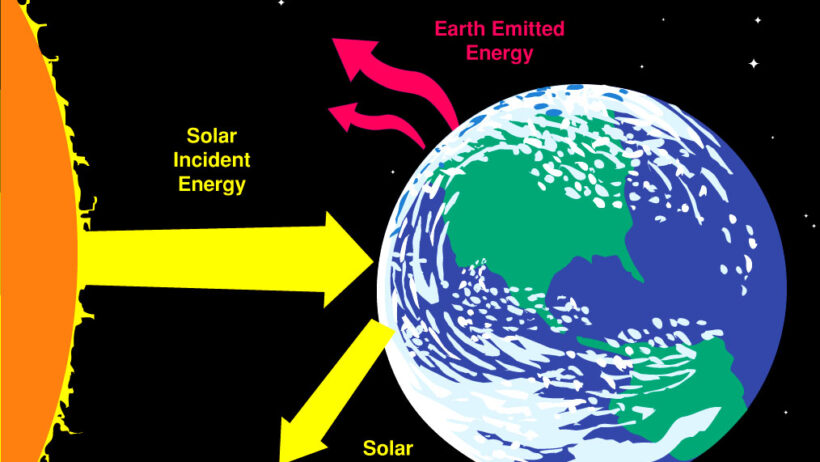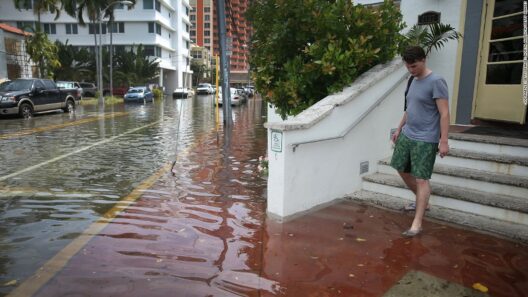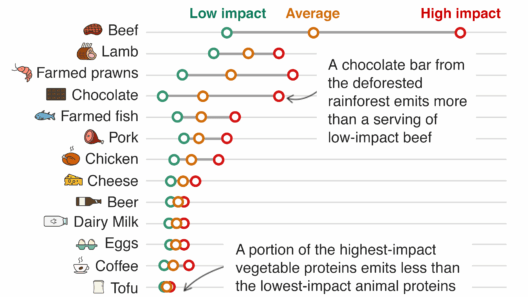Life on Earth exists in a delicate equilibrium—a verdant tapestry woven through time. Yet, this intricate fabric is fraying, strained by the relentless forces of global warming. As the atmosphere thickens with greenhouse gases, it acts like a shroud, capturing heat that would otherwise escape into the cosmos. In this climate crisis, the once-reliable seasons waver uncertainly, and the vibrant pulse of nature finds itself deeply altered. The implications span oceans, forests, and cities alike, with profound repercussions for all forms of life.
Imagine, if you will, the Earth as a finely-tuned symphony. Each instrument symbolizes a different ecological component: the trees, the waterways, the animals, and the delicate microflora—all contributing to the harmonious melody of life. When global temperatures rise, however, it’s akin to a discordant note cutting across the otherwise melodious arrangement. This perturbation manifests in myriad ways: diminishing ice caps, acidifying oceans, and shifting weather patterns that wreak havoc upon ecosystems. The crescendo of climate change has already begun, and the ensuing dissonance could overshadow the symphony of life.
A notable effect of this warming is the alteration of habitats. Arctic regions, once blanketed in glistening ice, are melting into an expansive sea, displacing polar bears, seals, and myriad other species. These animals are not merely losing their home; they are also losing the sustenance that was once abundant in their icy milieu. As the permafrost thaws, it releases captured carbon, adding fuel to the climate fire. This cycle amplifies stress on an already vulnerable ecological balance, a stark reminder of the interconnectedness of life.
Shifting our gaze to the oceans, one can observe an unsettling transformation. As atmospheric carbon dioxide levels rise, oceans absorb much of this excess, leading to ocean acidification. Coral reefs, the vibrant metropolises of marine life, are rapidly deteriorating. These underwater jungles serve not only as a habitat for countless species but also as a bulwark against coastal erosion. A decline in these reefs spells disaster for fishermen and communities reliant on the bounty of the sea. The vibrant colors of coral dissipate, much like a painter’s palette losing hues, reflecting a world that is gradually becoming monochrome.
Forests, too, are feeling the heat. Deforestation, often a practice exacerbated by climate change, follows on the heels of rising temperatures like a shadow. As wildfires rage across various continents—California, Australia, the Amazon—they ravage ecosystems and emit vast quantities of carbon into the atmosphere. These infernos not only obliterate habitats but also disrupt the carbon cycle, exacerbating the very issue we strive to mitigate. Native species perish, and human communities are often thrust into chaos as their homes become engulfed in flames.
The repercussions of global warming extend beyond natural ecosystems and seep into urban landscapes, where populations swell and infrastructure strains under the heat. As cities become “heat islands,” they intake heat and release it, creating conditions that are often unbearable. The health ramifications of heat waves, coupled with poor air quality from pollution, raise the stakes higher—especially for vulnerable populations, including the elderly and those with preexisting health conditions. The result is a growing public health crisis, with hospitals filling to capacity and urban planners grappling with the untenable.
Moreover, food security hangs perilously in the balance. As extreme weather events increase in frequency and intensity, traditional agricultural patterns are disrupted. Prolonged droughts jeopardize crop yields, while unpredictable monsoons can lead to flooding, washing away the very sustenance upon which humanity depends. The specter of famine looms, particularly in developing nations where resources are scant. Farmers, whose lives are tied to the whims of the climate, face uncertainty that extends far beyond their immediate livelihoods.
In the grand tapestry of life, one must also consider the ethical dimensions underlying climate change. The most vulnerable communities are often those least responsible for the emissions fueling this crisis. Indigenous peoples, smallholder farmers, and marginalized populations bear the brunt of environmental degradation, reflecting a profound ethical disparity. Their voices must be amplified, advocating for climate justice as they navigate an unjust trajectory shaped by the actions of more affluent nations. The burden of ecological stewardship should not rest solely on the shoulders of those who have contributed least to the problem; it must be shared among all stakeholders.
Despite this sobering picture, there exists a glimmer of hope. The human spirit—resilient and innovative—has the capacity to adapt and rebuild. Renewable energies, such as solar and wind power, are gaining traction; they have the potential to mitigate the adverse effects of global warming. Sustainable practices, such as regenerative agriculture and reforestation, offer pathways to restore balance. Collective advocacy for policy changes can propel society toward a more sustainable future, inspiring a shift from the path of destruction to one of stewardship.
As we grapple with the profound ramifications of global warming, it becomes abundantly clear: life on Earth exists in a precarious balance. From the smallest microorganisms to the largest mammal, each entity plays a pivotal role in this elaborate web. The urgency of the situation cannot be overstated. Climate change is not a dichotomy of individual struggle; it is a collective challenge that demands unified action. In the words of an anonymous sage, “The Earth does not belong to us; we belong to the Earth.” As we navigate this complexity, we must strive to return to harmony, ensuring that future generations inherit a thriving planet rather than a barren wasteland. The time for action is now.







